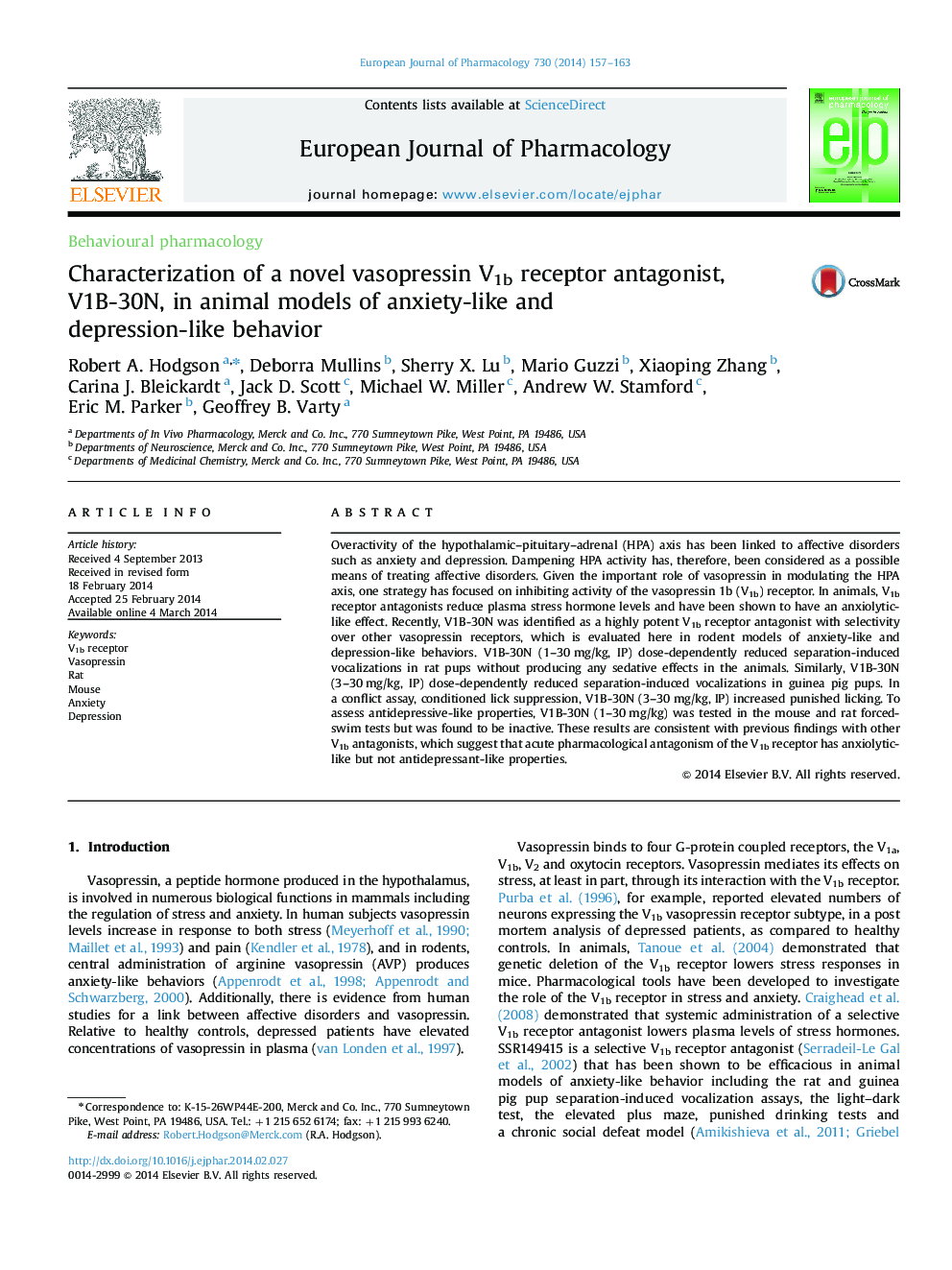| Article ID | Journal | Published Year | Pages | File Type |
|---|---|---|---|---|
| 5828059 | European Journal of Pharmacology | 2014 | 7 Pages |
Overactivity of the hypothalamic-pituitary-adrenal (HPA) axis has been linked to affective disorders such as anxiety and depression. Dampening HPA activity has, therefore, been considered as a possible means of treating affective disorders. Given the important role of vasopressin in modulating the HPA axis, one strategy has focused on inhibiting activity of the vasopressin 1b (V1b) receptor. In animals, V1b receptor antagonists reduce plasma stress hormone levels and have been shown to have an anxiolytic-like effect. Recently, V1B-30N was identified as a highly potent V1b receptor antagonist with selectivity over other vasopressin receptors, which is evaluated here in rodent models of anxiety-like and depression-like behaviors. V1B-30N (1-30Â mg/kg, IP) dose-dependently reduced separation-induced vocalizations in rat pups without producing any sedative effects in the animals. Similarly, V1B-30N (3-30Â mg/kg, IP) dose-dependently reduced separation-induced vocalizations in guinea pig pups. In a conflict assay, conditioned lick suppression, V1B-30N (3-30Â mg/kg, IP) increased punished licking. To assess antidepressive-like properties, V1B-30N (1-30Â mg/kg) was tested in the mouse and rat forced-swim tests but was found to be inactive. These results are consistent with previous findings with other V1b antagonists, which suggest that acute pharmacological antagonism of the V1b receptor has anxiolytic-like but not antidepressant-like properties.
